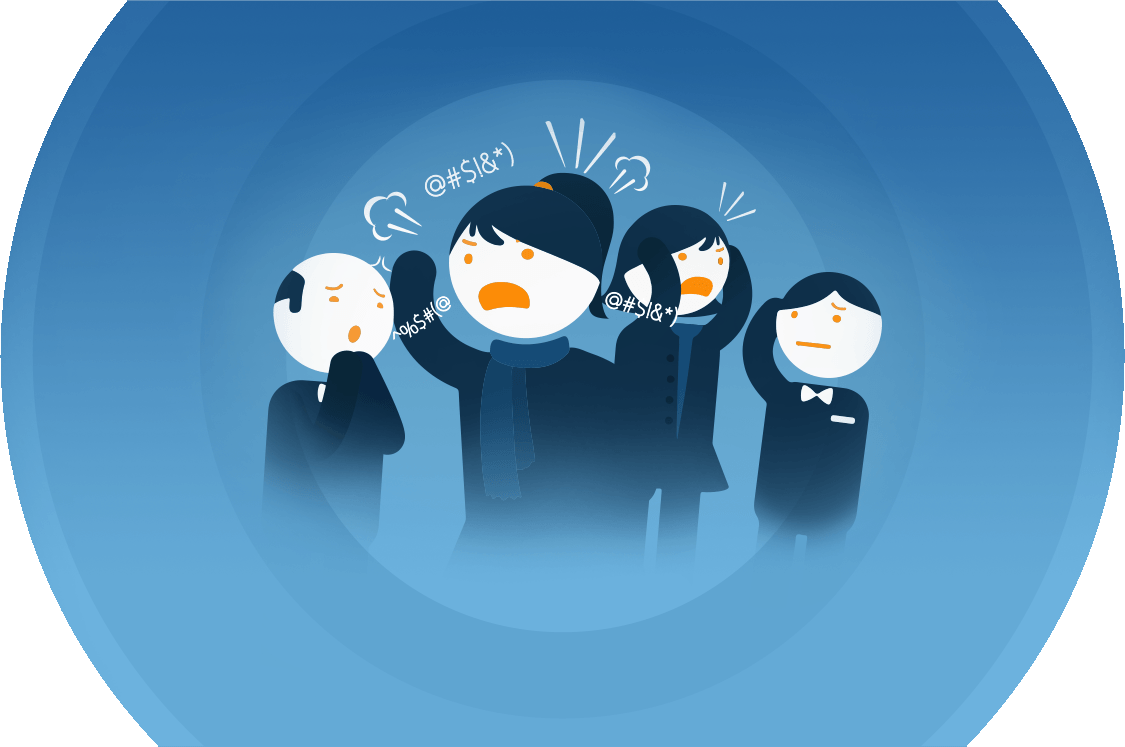
With businesses opening back up again, every business is going to be focused on their customers, and building the trust of those customers so they know it’s ok to start interacting with them again.
This means it’s even more essential than ever that businesses don’t lose those customers through a poor customer experience.
With customer service roles representing a major employment sector for Californians, we wanted to know how many of those were given customer service training, and if they were provided with training on how to deal with customers in our new corona era.
These could be anxious customers, disappointed customers or plain old rude customers. In our current environment, it’s inevitable that customers will be anxious, or they’ll be disappointed by delays or inconveniences, and some will become rude because of this.
In an online survey conducted by Canity ⁽¹⁾, we found that:
1 in 4 Californians working in Customer Service have received no training at all. NONE. EVER.

This is an alarming statistic at any time given customer service reps are the people who actually interact with customers.


More than half of Americans have scrapped a planned purchase or transaction because of bad service, and in the time of Covid-19 no business can afford to be turning customers to their competitors because of a poor customer experience. ⁽³⁾
The majority of survey respondents indicated they’d welcome customer service training, including those that had and hadn’t previously received training, and that their preference was for this training to be online.
Their main area of concern was dealing with difficult customers and dealing with rude customers.
Survey respondents indicated these as the primary areas they required training in. These results are hardly surprising in our current environment, and yet 1 in 4 haven’t even received the most basic of customer service training.

A surprising insight gained was that respondents showed a much stronger preference for Phone Skills training over Email Skills training or Online Chat Skills training, potentially pointing to a trend during Covid-19 for customers preferring to call and interact with a person over the phone, rather than communicating electronically.
Further analysis of the rapidly changing trends in the way customers interact with organisations will be forthcoming and of much interest to the business community.
In summary, our survey results confirm what our previous research has shown, which is that customer service representatives want to be empowered to take training when they’re able to rather than to be forced into day long training sessions. Customer service reps want to be able to access bespoke training specific to their needs rather than generic one size fits all training.
The combined shift to online training and microlearning allows for this tailored approach of delivering the right training, when it’s needed and when team members are receptive to it. This makes it effective training, making not just a cost saving in terms of investment and time, but also in delivering better outcomes in terms of training results and ultimately improved customer service resulting in a better customer experience.
If you’d like to speak to us further about how Canity’s online customer service training platform might work for your organisation contact us here or browse our Training Library
1. Online Survey conducted by Canity via Google of 800 residents in the California area over the period 25th of June to 30th of June 2020.
2. American Express 2017 Customer Service Barometer
3. American Express 2017 Customer Service Barometer


Published by Canity